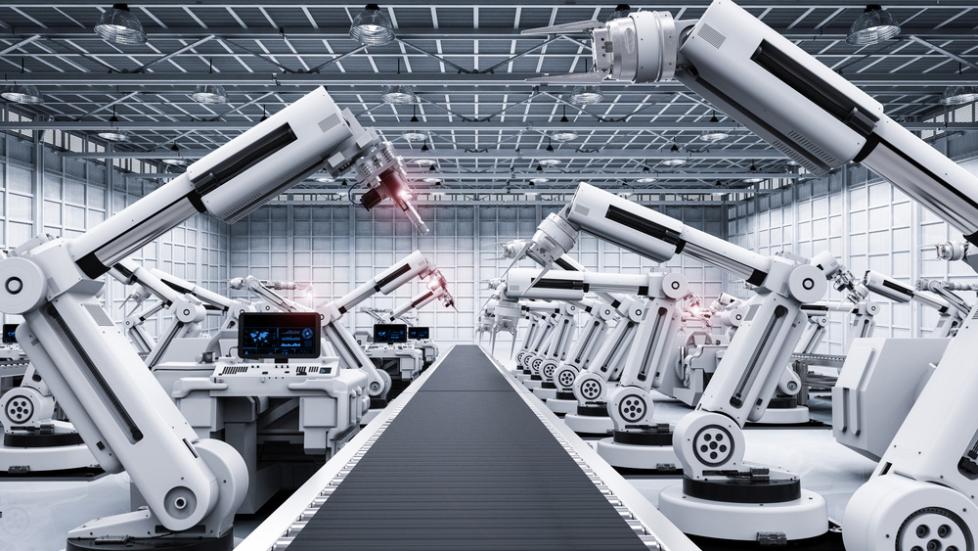What Are the Potential Benefits of Artificial Intelligence and Robotics?
In the realm of technology, artificial intelligence (AI) and robotics have emerged as transformative forces, promising to revolutionize various sectors and aspects of our lives. These technologies have the potential to bring about significant benefits across industries, enhancing efficiency, productivity, and human well-being.

Benefits Of AI And Robotics In Different Sectors
Healthcare:
- AI-powered Diagnostics and Treatment: AI algorithms can analyze vast amounts of medical data, enabling more accurate and timely diagnosis of diseases. This can lead to personalized treatment plans and improved patient outcomes.
- Robotic Surgery and Rehabilitation: Surgical robots provide greater precision and control, reducing the risk of complications and improving surgical outcomes. Rehabilitation robots can assist patients in recovering from injuries or disabilities.
- Personalized Medicine and Drug Discovery: AI can analyze individual genetic and health data to develop personalized treatment plans and drugs tailored to specific patients, increasing the effectiveness of treatments.
Manufacturing:
- Automation and Increased Efficiency: AI and robotics can automate repetitive and dangerous tasks, increasing productivity and efficiency in manufacturing processes.
- Improved Product Quality and Consistency: Robots can perform tasks with greater precision and consistency than humans, resulting in higher-quality products.
- Reduced Labor Costs and Increased Productivity: Automation can reduce labor costs and increase productivity, making manufacturing processes more cost-effective.
Transportation:
- Self-driving Cars and Trucks: Autonomous vehicles have the potential to reduce accidents, improve traffic flow, and increase transportation efficiency.
- Traffic Management and Optimization: AI can analyze traffic data in real-time to optimize traffic flow, reducing congestion and travel times.
- Improved Public Transportation Systems: AI can help optimize public transportation schedules and routes, making them more efficient and convenient.
Finance And Banking:
- Fraud Detection and Prevention: AI algorithms can analyze financial transactions to detect fraudulent activities, reducing financial losses.
- Automated Customer Service and Support: AI-powered chatbots and virtual assistants can provide 24/7 customer service, improving customer satisfaction.
- Personalized Financial Advice and Investment Management: AI can analyze individual financial data to provide personalized advice and investment recommendations, helping individuals achieve their financial goals.
Retail And E-commerce:
- Personalized Shopping Recommendations: AI can analyze customer behavior and preferences to provide personalized shopping recommendations, improving customer satisfaction and increasing sales.
- Improved Customer Service and Support: AI-powered chatbots and virtual assistants can provide real-time customer support, resolving queries quickly and efficiently.
- Automated Inventory Management and Supply Chain Optimization: AI can optimize inventory levels and supply chain processes, reducing costs and improving efficiency.
Societal Benefits Of AI And Robotics
- Increased Productivity and Economic Growth: AI and robotics can boost productivity and economic growth by automating tasks, improving efficiency, and creating new industries and job opportunities.
- Improved Healthcare and Longevity: AI and robotics can enhance healthcare outcomes, leading to improved longevity and quality of life.
- Enhanced Safety and Security: AI and robotics can improve safety and security by automating dangerous tasks, enhancing surveillance, and detecting potential threats.
- Increased Access to Education and Information: AI can personalize education, making it more accessible and effective. It can also provide access to information and resources to individuals who may not have had access before.
- New Job Opportunities and Skill Development: AI and robotics can create new job opportunities and require individuals to develop new skills, leading to a more skilled and adaptable workforce.
Challenges And Concerns
- Job Displacement and Economic Inequality: Automation may lead to job displacement, particularly in low-skill occupations. This could exacerbate economic inequality and create social challenges.
- Ethical Issues and Potential Misuse of AI and Robotics: The development and use of AI and robotics raise ethical concerns, such as the potential for bias, discrimination, and the misuse of these technologies.
- Data Privacy and Security Concerns: AI and robotics rely on vast amounts of data, raising concerns about data privacy and security. Protecting personal data from unauthorized access and misuse is crucial.
- Need for Regulation and Governance: The rapid advancement of AI and robotics requires effective regulation and governance to ensure responsible development and use of these technologies.
Artificial intelligence and robotics hold immense potential to transform industries, improve human lives, and address global challenges. However, it is crucial to address the associated challenges and concerns to ensure that these technologies are developed and used responsibly and ethically. By harnessing the power of AI and robotics while mitigating the risks, we can create a future where these technologies augment human capabilities, drive progress, and create a better world for all.
YesNo

Leave a Reply